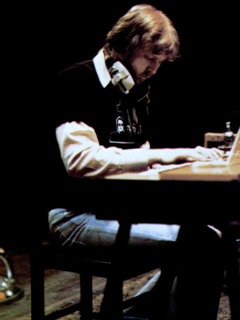
Harry Edward Nilsson III, sometimes credited as Nilsson, was an American singer-songwriter who reached the peak of his commercial success in the early 1970s. His work is characterized by pioneering vocal overdub experiments, returns to the Great American Songbook, and fusions of Caribbean sounds. A tenor with a 3+1⁄2 octave range, Nilsson was one of the few major pop-rock recording artists to achieve significant commercial success without ever performing major public concerts or undertaking regular tours.

Judith Marjorie Collins is an American singer-songwriter and musician with a career spanning seven decades. An Academy Award-nominated documentary director and a Grammy Award-winning recording artist, she is known for her eclectic tastes in the material she records, for her social activism, and for the clarity of her voice. Her discography consists of 36 studio albums, nine live albums, numerous compilation albums, four holiday albums, and 21 singles.
The 11th Annual Grammy Awards were held on March 12, 1969. They recognized accomplishments of musicians for the year 1968.

Eliza Amy Forbes Carthy, MBE is an English folk musician known for both singing and playing the fiddle. She is the daughter of English folk musicians singer/guitarist Martin Carthy and singer Norma Waterson.

James Beck Gordon is an American musician, songwriter, and convicted felon. Gordon was a popular session drummer in the late 1960s and 1970s and was the drummer in the blues rock supergroup Derek and the Dominos.

Mason Douglas Williams is an American classical guitarist, composer, singer, writer, comedian, and poet, best known for his 1968 instrumental "Classical Gas" and for his work as a comedy writer on The Smothers Brothers Comedy Hour, The Glen Campbell Goodtime Hour, and Saturday Night Live.

Aerial Ballet is the third studio album by American musician Harry Nilsson, released in July 1968.

Nilsson Sings Newman is the fifth studio album by American singer-songwriter Harry Nilsson, released in February 1970 on RCA Victor. It features songs written by Randy Newman. Recorded over six weeks in late 1969, the album showcases Nilsson's voice multi-tracked in layers of tone and harmony. Its arrangements are otherwise sparse, with most of the instrumentation provided by Newman on piano. The record was not a great commercial success, but won a 1970 "Record of the Year" award from Stereo Review magazine. The LP record cover art was illustrated by Dean Torrence.

Aerial Pandemonium Ballet is a 1971 album by Harry Nilsson, and one of the first-ever remix albums, years before they became commonplace in the late 1970s and 1980s onwards.

The Smothers Brothers Play It Straight is the ninth album by the Smothers Brothers. As the title indicates, the folk comedy duo were singing the songs "straight". Like the B-side of their second album, Two Sides of the Smothers Brothers, the recording was done in a studio instead of on stage. The album cover shows Tom standing with his guitar and Dick sitting on a stool with his bass lying behind him. There is also a chicken eating chicken-feed, which could be a representation of Frank, Tom's wagon pulling chicken who is discussed on Mom Always Liked You Best!.
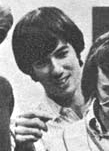
Douglas Farthing Hatlelid, better known as Chip Douglas, is an American songwriter, musician, and record producer, whose most famous work was during the 1960s. He was the bassist of the Turtles for a short period of time and the producer of some of the Monkees biggest hits, including "Daydream Believer" and "Pleasant Valley Sunday".

Two Sides of the Moon is the only solo album by English rock musician Keith Moon, drummer for the Who. It peaked at No. 155 on the Billboard 200. The album title was credited to Ringo Starr. Rather than using the album as a chance to showcase his drumming skill, Moon sang lead vocals on all tracks, and played drums only on three of the tracks, although he played percussion on "Don't Worry Baby". The album features contributions from Ringo Starr, Harry Nilsson, Joe Walsh of the Eagles, Jim Keltner, Bobby Keys, Klaus Voormann, John Sebastian, Flo & Eddie, Spencer Davis, Dick Dale, Suzi Quatro's sister Patti Quatro, Patti's bandmates from Fanny Jean Millington and Nickey Barclay, and future actor Miguel Ferrer.

An Evening with Diana Ross is a 1977 live double album released by American singer Diana Ross on the Motown label. It was recorded live at the Ahmanson Theatre in Los Angeles on December 1976 during the international tour of Ross' one-woman show, for which she was awarded a special Tony Award after the show's run at Broadway's Palace Theater, followed by an Emmy-nominated TV special of the same name. The album reached #29 in the USA . The album showcased her live performances for the second time as a solo performer, following 1974's Live At Caesars Palace. It was the last live album Ross released until 1989's Greatest Hits Live.

"Everybody's Talkin' (Echoes)" is a song written and recorded by American singer-songwriter Fred Neil in 1966 and released two years later. A version of the song performed by American singer-songwriter Harry Nilsson became a hit in 1969, reaching No. 6 on the Billboard Hot 100 chart and winning a Grammy Award after it was featured in the film Midnight Cowboy. The song, which describes the singer's desire to retreat from the harshness of the city to a more peaceful place and an easier life, is among the most famous works of both artists, and has been covered by many other notable performers.

Love Song is the eighth studio album by Anne Murray issued in 1974 on Capitol Records. It peaked at number 24 on the Billboard Pop Albums chart and the title track won a Grammy Award for Best Female Country Vocal Performance.
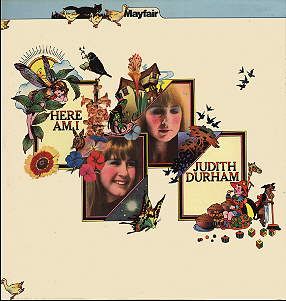
Here Am I is the first international compilation album by Australian recording artist Judith Durham. The album contains tracks from Durham's two studio album, Gift of Song and Climb Ev'ry Mountain both on A&M Records. The album was released in October 1972 and was the final release of Durham's on that label.
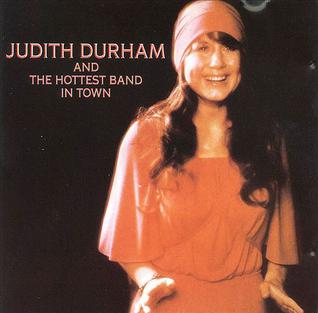
Judith Durham and The Hottest Band in Town is the fourth studio album from Australian recording artist Judith Durham. The album was Durham's first released via Pye Records in June 1974.
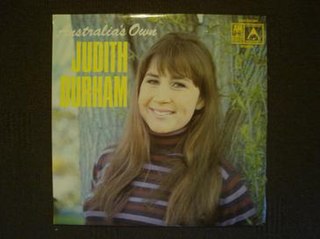
Australia's Own Judith Durham is a compilation album released in Australia in 1971 by Australian recording artist Judith Durham.

Live in Concert is a live album credited to Melbourne Welsh Male Choir with Judith Durham. The album was recorded in Melbourne Concert Hall in March 2002 under the direction of Doug Heywood with a 70-man Melbourne Welsh Choir and the 50-piece Camerata symphony orchestra. Excerpts of the concert were released on CD in September 2002.
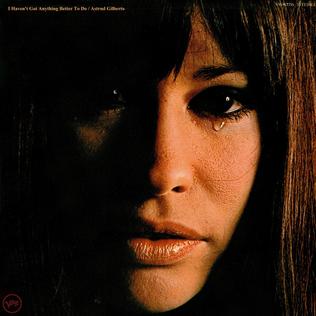
I Haven't Got Anything Better to Do is a studio album by Brazilian bossa nova singer Astrud Gilberto, released on Verve Records in 1969. In the liner notes Gilberto calls the album her "fireplace album".




















